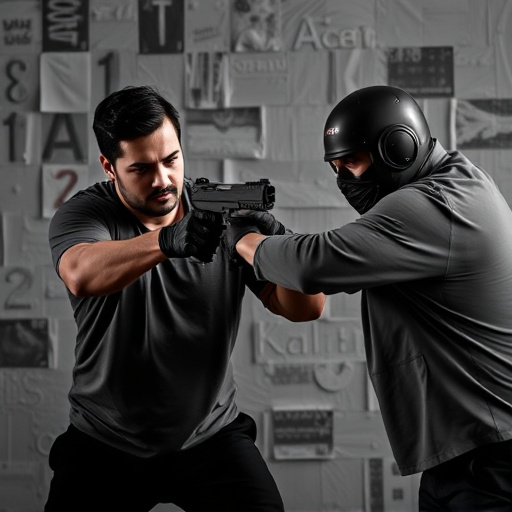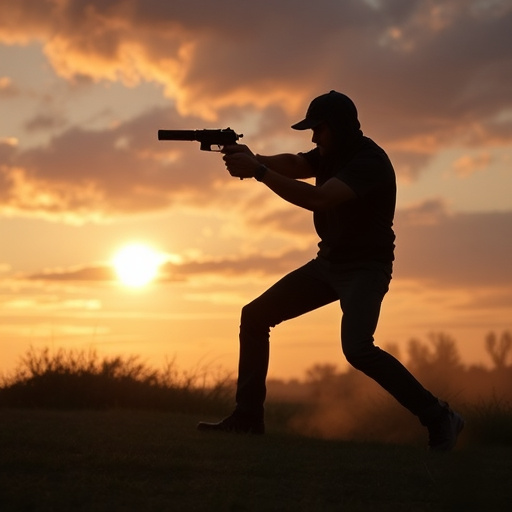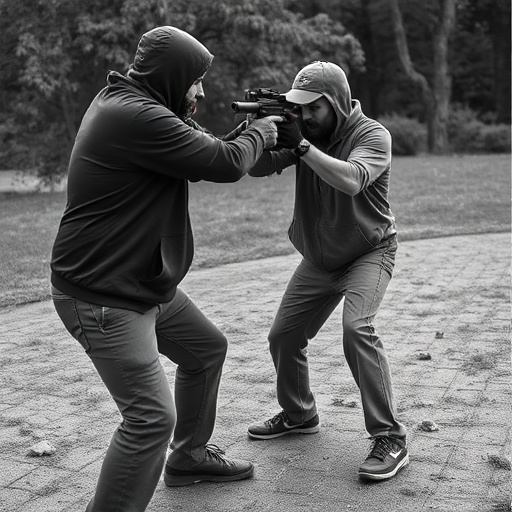Women seeking best self-defense stun guns must understand varied state laws in US, affecting carry permissions, age restrictions, and voltage limits. Researching local regulations is key to legal compliance and peace of mind while prioritizing compact design, high voltage, LED flashlight, durability for various environments, long battery life, and quick recharge abilities.
“In today’s unpredictable world, personal safety is paramount, especially for women seeking effective self-defense options. Stun guns, compact and powerful tools, offer a layer of protection against potential threats. However, navigating the legal landscape surrounding stun guns varies from state to state. This article provides an in-depth look at stun gun laws across the US, offering a state-by-state overview to guide readers in making informed decisions. We explore legal self-defense choices tailored for women, understand carrying restrictions, and highlight top-rated, safe stun guns suitable for personal protection.”
- Stun Gun Laws: A State-by-State Overview
- Choosing Legal Self-Defense Options for Women
- Understanding Restrictions: Where Can You Carry?
- Rights and Responsibilities: Know Your Limits
- Top Picks for Safe, Legal Self-Defense Devices
Stun Gun Laws: A State-by-State Overview

Stun guns, often considered a popular choice for personal protection, particularly among women seeking the best self-defense stun gun, are subject to varying legal restrictions across the United States. These laws differ significantly from state to state, impacting accessibility and usage. Understanding these regulations is crucial for citizens aiming to exercise their right to self-defense while adhering to local statutes.
In some states, stun guns are completely unrestricted, allowing open carry without a permit. Other jurisdictions require users to obtain a concealed weapon permit or register their stun device with law enforcement. Certain states also have specific age restrictions, requiring users to be at least 18 or 21 years old. Additionally, there might be limitations on the voltage or power output allowed, with some states banning devices exceeding a certain threshold. These state-by-state variations underscore the importance of researching local laws before purchasing and carrying a stun gun for self-defense purposes.
Choosing Legal Self-Defense Options for Women

For women looking to protect themselves, understanding state laws regarding stun guns is essential. When choosing a legal self-defense option, many opt for stun guns due to their non-lethal nature and ease of use. Among the variety available, the best self-defense stun gun for women should be compact, lightweight, and easy to carry discreetly. It’s crucial to select devices with high voltage output, ensuring they are powerful enough to incapacitate an attacker without causing permanent harm.
Additionally, features like a built-in LED flashlight can enhance visibility in dark or shadowy situations, while a durable design that resists water damage ensures it can be relied upon in various environments. Women should also look for stun guns with long battery life and quick recharge abilities to avoid being caught off guard. Ultimately, the best choice is one that provides peace of mind, knowing it’s both legal and effective in personal protection scenarios.
Understanding Restrictions: Where Can You Carry?

When considering a best self-defense stun gun for women, understanding the legal restrictions by state is crucial. Each state has its own set of rules regarding where and how you can carry a stun gun. Some states allow open carry, meaning you can have your stun gun on your person without a permit, while others require a concealed carry permit. Certain locations, like schools, government buildings, or airports, are off-limits for stun gun carrying across all states.
Knowing these restrictions is essential to ensure compliance with local laws and avoid any legal repercussions. Women considering self-defense options should research their state’s specific regulations to determine where they can legally carry a stun gun for personal safety. This information empowers them to make informed decisions about their safety while adhering to the law.
Rights and Responsibilities: Know Your Limits

When considering a best self-defense stun gun for women, it’s crucial to understand your rights and responsibilities in each state. Laws regarding stun guns vary widely, and what is legal in one state might be prohibited or have different restrictions in another. For example, some states allow stun guns without a permit while others require registration or even a concealed carry license. It’s essential to research the specific laws in your state to ensure you’re using and carrying your stun gun legally.
Knowing your limits not only helps you stay within the bounds of the law but also enhances your safety. Stun guns are powerful tools, and their use should be considered a last resort. Understanding local regulations enables you to make informed decisions about when and how to deploy your stun gun for self-defense. Always remember that personal safety is paramount, and staying aware of legal restrictions ensures you remain protected while respecting the laws governing your community.
Top Picks for Safe, Legal Self-Defense Devices

When it comes to choosing a safe and legal self-defense device, especially for women, stun guns top the list due to their effectiveness and ease of use. In many states, stun guns are classified as non-lethal weapons, making them an attractive option for personal safety without the risk of causing permanent harm.
Among the best self-defense stun guns for women, compact and lightweight models stand out for their portability. These devices often come with features like high voltage outputs, LED flashlights, and multiple settings to cater to various situations. They are designed to be easily accessible and ready for use in case of emergencies, providing peace of mind and empowering individuals to protect themselves effectively.
When considering the best self-defense stun gun for women—or anyone—it’s crucial to understand the intricate web of state laws governing their possession and use. Navigating these restrictions is essential for ensuring both personal safety and legal compliance. By staying informed about your state’s regulations, you can make an empowered decision when choosing a legal self-defense option, ultimately fostering a safer environment for all. Remember that knowledge is your best defense.
